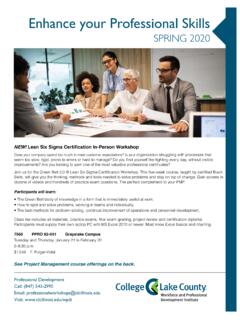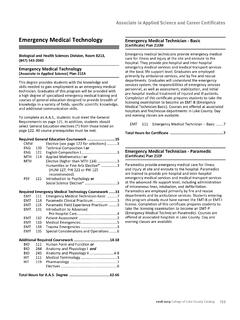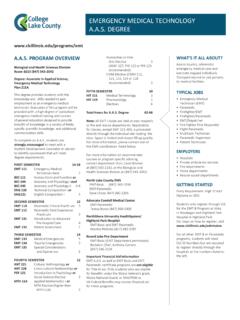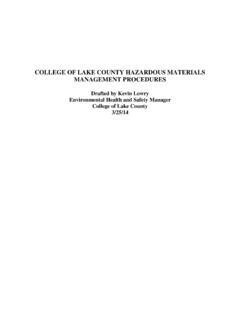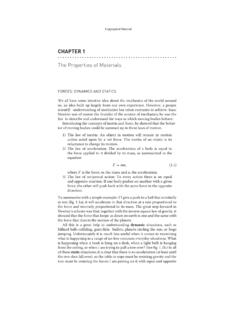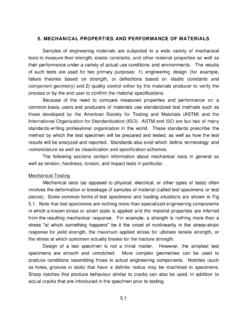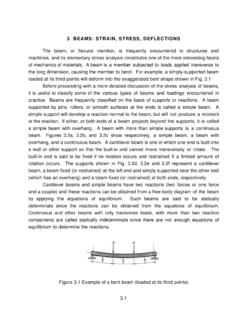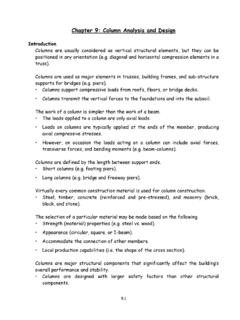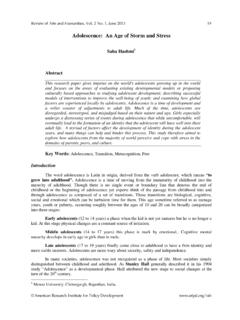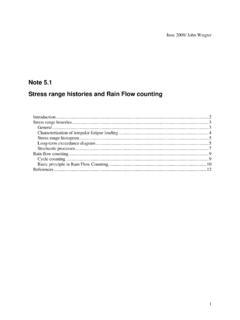Transcription of Why is Human Anatomy and Physiology so important to …
1 Why is Human Anatomy and Physiology so important to your success in a health care field? What is Anatomy and Physiology ? Anatomy is the study of the structures associated with the Human body. Physiology is the study of the function of each of these structures. The Human body is often thought of as a complicated machine. In order for the machine to work, it must have all of its parts but in addition each of these parts must function optimally. If organs or organ systems are not functioning properly, then the patient is described as having disease. Let s discuss a specific example. Some patients have a thinning (weakening) in the wall of an artery.
2 This is referred to as an aneurysm. The blood in arteries is under very high pressure. This pressure becomes even greater when we are undergoing activity such as exercise. If the wall of the artery is weak and the pressure on the blood increases too much, then the vessel may rupture (burst aneurysm) and the patient may bleed to death. The structure (vessel wall) has changed so that the artery can no longer carry out its function (containing the blood). Why is Anatomy and Physiology a pre-requisite course for all allied health programs? At the heart of all allied health careers is the relationship between the health care provider and his or her patients.
3 Unless your patients are coming for annual exams, they come to you because an organ or organ system is not functioning properly in their body. In order to treat them well, you must first understand how the body functions when it is healthy. This is the purpose of your pre-requisite Anatomy and Physiology course. You may discuss disease situations during your A&P lectures but the purpose of these discussions is really to stress the way the organ or organ system functions normally. Later in your educational career you will take courses that often have pathophysiology in their title. The instructors in these courses will assume that you know the normal functioning of a particular organ system.
4 You will then learn all of what can go wrong within that particular organ system. Why should you be interested in this material? You want to provide patients the best care possible. Most often your patients will have a disease. Diseases result when there is something abnormal in the Anatomy and Physiology of a structure. With a car, you can t understand how to fix an engine if you don t know how it works. The same is true with your patients. You can t really understand how to treat them or why the treatment works, if you don t understand how the effected body system normally functions. Patients will want to understand their diseases.
5 In order to help them understand what is going wrong, you have to first understand how a particular organ is supposed to work. In addition, you will need to be able to explain these things to patients in a way that they can understand. If you don t understand it well, you won t be able to explain it. Your patient s confidence in your ability will be at least partially determined by your ability to discuss what you are doing and why you are doing it. You will need to look up information if you are not sure. Organ systems are so interconnected that a disease in one system may result in a symptom in another system.
6 Without seeing the normal interconnectedness, you cannot fully understand the disease. Success in an allied health field requires at least three things. First, you must have the personality to be able to support and help patients. Secondly, you must have the scientific and technical knowledge necessary to make the correct decisions regarding patient care. Thirdly, you must have the clinical skills necessary to implement this knowledge. Your A&P course provides you with the information you will build upon in your allied health classes and clinical experiences. Do not view this course as a hurdle to cross.
7 When you jump across a hurdle, you are in essence at the same level as you were before you jumped. Instead, view your Anatomy and Physiology course as an early step on the ladder that represents your knowledge. You can t successfully move to the next rung unless you have a solid footing on the rung below. Once you move on, instructors assume that you understand the basic Anatomy and Physiology . They will not re-teach this material. You will need to fill in any gaps that you have. It is best to try to understand as much as you can while you are taking the A&P course. This minimizes the gaps that you will need to fill in later.
8
